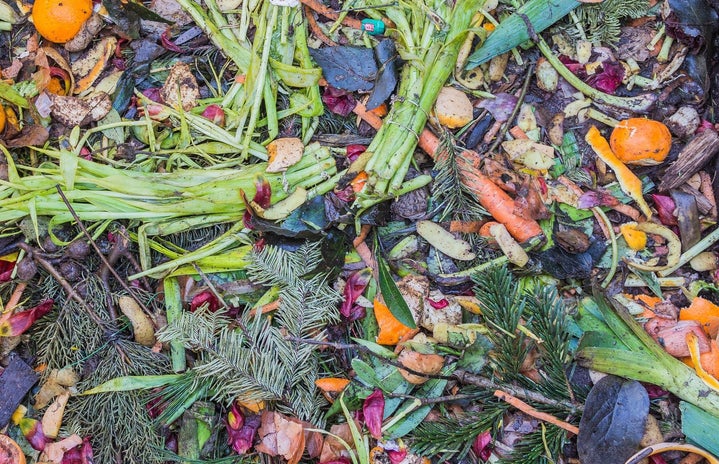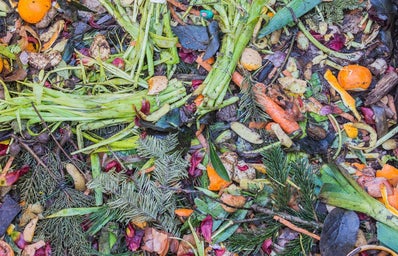Being alive amidst our current environmental conditions can feel fruitless; no matter what you do, it seems impossible to lower your negative environmental impact. For those of us who are feeling down and out about environmental concerns, composting may just be the perfect turn.
Composting may seem like a bit of a buzzword. It’s mentioned often via environmental infographics, or even around college campuses as administrations seek more environmentally-friendly practices. But even if you’re familiar with the term, you might have no clue what it really means. Luckily, it’s fairly simple: composting is a method of decomposing waste into a material called compost, which can be used as fertilizer. In other words, it’s the ultimate form of recycling.
At Geneseo, compostable waste can be popped into green buckets (you’ve probably seen them floating around campus—they’re in nearly every building!) before being sent off to be composted in bulk by the Department of Facilities Services. But don’t fret if you’re off-campus—composting is easier than meets the eye.
You have plenty of options if you’d like to compost in or near your abode. A classic option for those with a bit more space is to get a compost tumbler. These nifty containers skip the “middle man” of composting, in which the gardener uses a pitchfork or garden hoe to mix the materials to break them down into compost. This practice isn’t too arduous for backyard composters, but most college kids don’t have quite the same means. That’s where tumblers come in; they’re sealed, rotating containers that consolidate heat generated from composted materials, which further speeds up the composting process! It should be noted, though, that they aren’t the cheapest option (prices range from $70-200), but can make a big difference in the lives of committed composters.
For those with green thumbs, a worm composter may be a lovely addition to your home. As the name suggests, they involve worms; the worms conduct the aforementioned work of mixing materials, which makes them especially efficient. The best part about worm composters, though, is that you can make them yourself or purchase one! It should be noted, though, that either option will require you to buy worms; once assembled, the human-worm interactions are limited, but this form of composting is certainly not for anti-bug folk (though I would remind those afraid of bugs that composting is the most sustainable form of exposure therapy out there).
If neither of these options are appealing to you, you can always check to see if there is a communal composting site near you, or ask relatives if they have composting piles. I’ve also only included a few of the most popular composting methods, but there are plenty more to consider before embarking upon your composting journey!
Now you may be wondering what you can and can’t compost. The good news is that there are quite a few products that can be composted: fruit waste (rinds, peels), vegetable peelings, tea bags, grass cuttings, fallen leaves and even paper scraps. A general rule of thumb is that just about anything organic can be composted. Typically, a composter will include all compostable goods in their pile, but they can also tailor their materials to their needs; crushed egg shells, for example, add helpful minerals for fertilizer. Some things to absolutely NOT include in your precious compost are meat/dairy products, pet waste (including litter!), diapers or any kinds of plastic, metal and glass. And, when in doubt, a quick Google search will help assure that your compost is up to par.
Hopefully, this handy guide to composting made you feel ready to embark upon a beautiful, environmentally-conscious journey. Composting may seem daunting, but it’s one of the most important things we as individuals can do to reduce our carbon footprints, and it’s fun to boot! Now go invite your friends to start a composting club, make a notes page of compostable materials and thank some worms for all of their hard work in the composting community.


